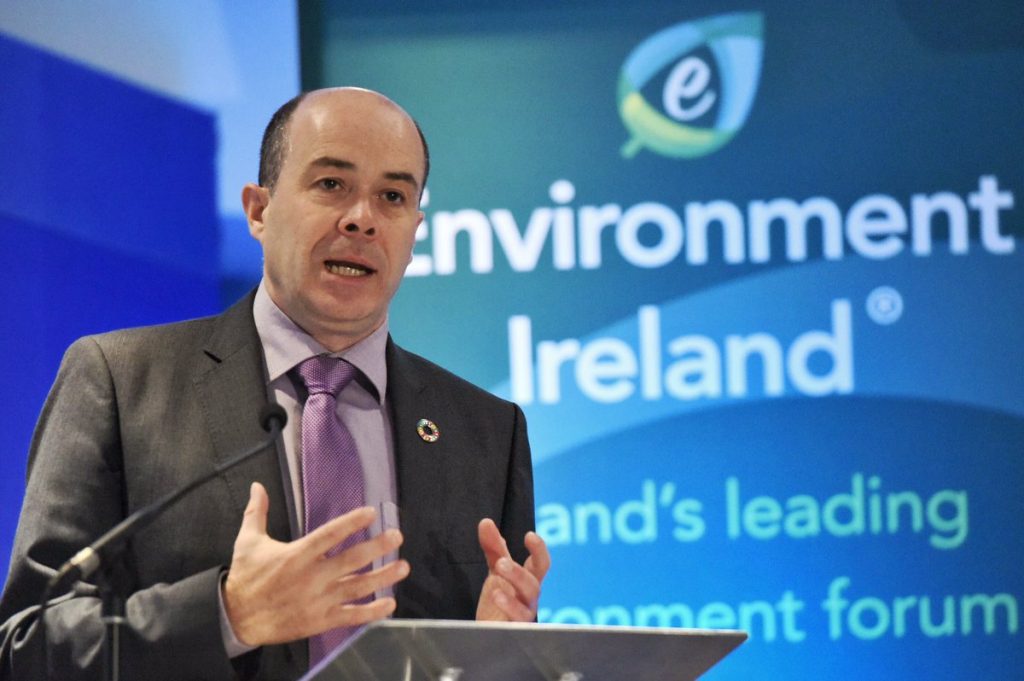NGOs fear EU emissions targets set to be weakened

October 12th, 2017
The head of Europe’s largest network of environmental NGOs has raised concern with the potential weakening of European emission reduction targets ahead of a major EU Council meeting tomorrow.
The European Environmental Bureau’s Secretary General Jeremy Wates expressed his concerns about negotiations on the Effort Sharing Regulation (ESR) in a letter sent ahead of this Friday’s EU Environment Council Meeting at the European Convention Center in Luxembourg.
The letter also raised concern with a number of other issues including the regulation on land use, land-use change and forestry (LULUCF) and issues around EU’s compliance with the Aarhus Convention.
Effort Sharing Regulation
The ESR sets national emission reduction targets for the EU Member States for the transport, buildings, agriculture and waste sectors, which combined account for roughly 60 per cent of total EU emissions.
The EEB letter – sent to the Environment Minister of each EU Member States – highlights the Bureau’s opposition to “inappropriate starting points” proposed by the European Commission for emissions reduction targets and the “forestry loophole” in the proposed ESR.
The Commission has proposed a starting point for the 2030 ESR based on the average emissions of each Member State from 2016 to 2018. Experts warn that this would inflate the total allowable carbon budget as emissions are expected to decrease between 2016 and 2020.
For the Member States failing their 2020 obligations, such as Ireland, the proposal creates an incentive for them to increase their emissions up to 2020, thus making the required reductions following this date easier to achieve.
Germany has put forward a proposal which addresses this issue, by ensuring that countries that miss their 2020 target must begin their 2030 emission reduction trajectory from the level of their 2020 target.
The European Parliament has voted for the trajectory to start in 2018 as most Member States emissions levels are falling as they aim to reach their 2020 targets.
Experts say that this will ensure that most Member States would be starting from a higher baseline and lead to higher emissions reductions targets up to 2030.

Minister Denis Naughten will attend the Council meeting tomorrow Photo: Environment Ireland
Irish Position
A study released by Carbon Market Watch and Transport & Environment in April 2017 examined the policy position of member states in ESR negotiations.
The report found that Ireland has been lobbying to “further weaken” the Commission’s proposal by moving the baseline year from 2020 to 2021. “The country is still trying to stall reduction efforts for another decade,” the report stated.
This change would allow for an additional 249MT of emissions to be released across Europe up to 2030, the report found. This is almost equal to the annual emissions of the Canadian oil-producing province of Alberta.
The report also found that Ireland is likely to earn up to 10 per cent of the 280 million forestry credits on offer, and almost one-fifth of the ETS flexibility. As the Commission’s position currently stands, Ireland would essentially only be required to cut its emissions by one per cent up to 2030.
In a statement, the Department of Communications, Climate Action and Environment said that it “would not be appropriate to comment” on Ireland’s position in advance of the tomorrow’s meeting.
Aarhus Compliance
The EEB letter also highlights the “deeply damaging” EU reaction to the finding at last month’s Meeting of the Parties to the Convention (MoP) in Budva, Montenegro that it is non-compliant under the Aarhus Convention.
The Aarhus Convention Compliance Committee found that the EU is non-compliant due to a failure to provide adequate access to justice at the EU level.
The EU proposed that the MoP should end the longstanding practice whereby findings of non-compliance by the Committee are endorsed by the MoP, instead proposing that the MoP should only ‘take note’ of this finding.
Every single finding of non-compliance since the establishment of the compliance mechanism in 2002 has been endorsed by the MoP with the full support of the EU.
By seeking to end this longstanding practice, the EU “risked weakening the entire compliance mechanism and therefore the implementation of the Convention itself”, Mr Wates states in the EEB letter.
He added that the Commission must take steps “without delay” to bring the EU back into compliance with the Convention.
“The EU now needs to evaluate the lessons from the Budva meeting and move swiftly to address the problems underlying the finding of non-compliance,” the letter states.
[x_author title=”About the Author”]







